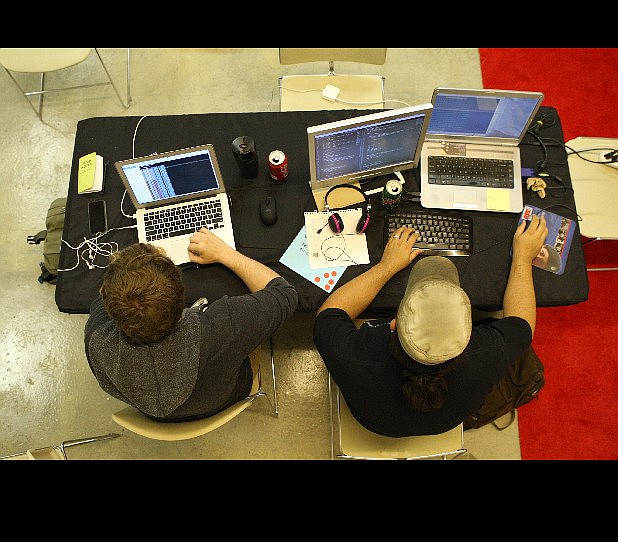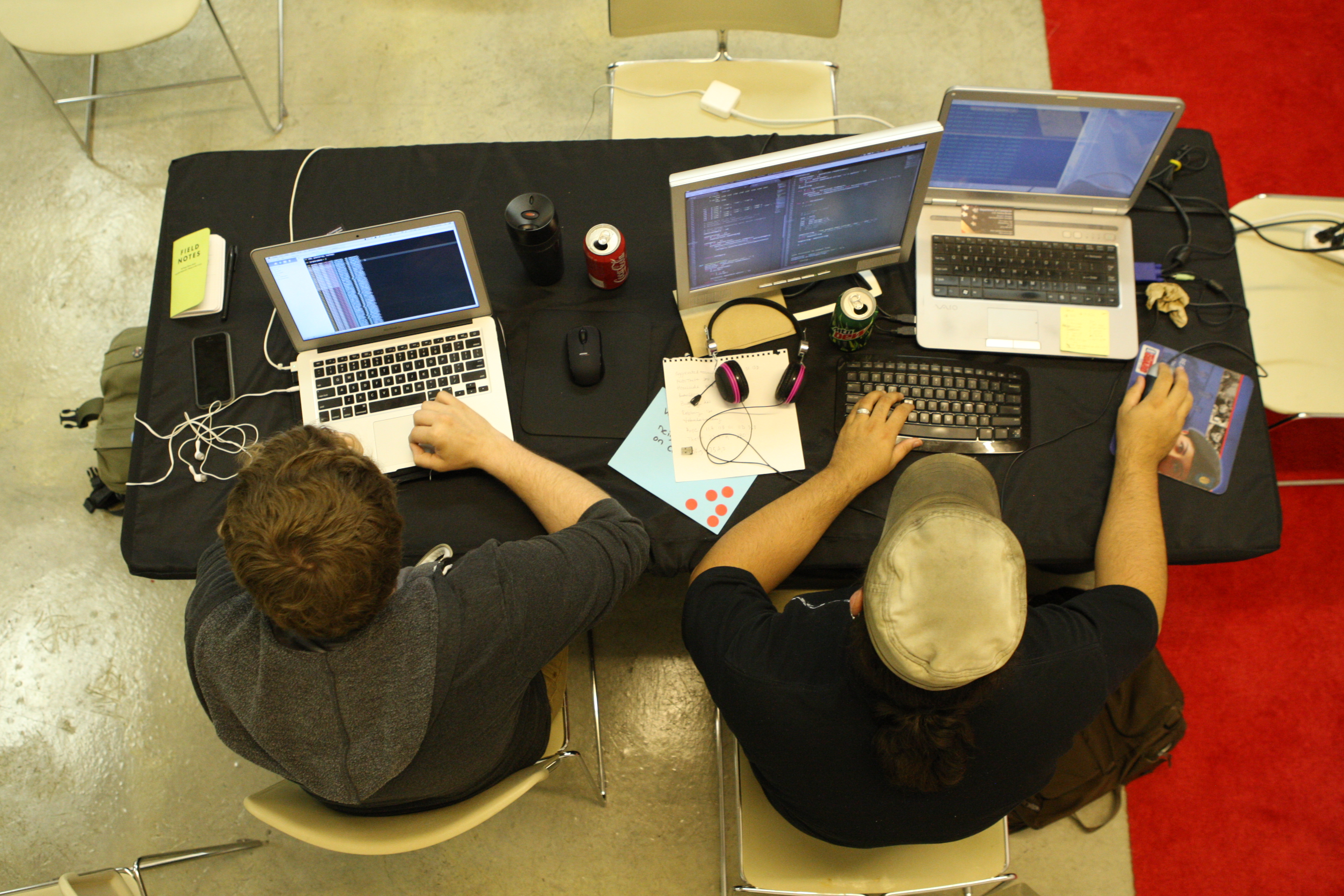Helpful hacking: Volunteers look for ways to use tech to solve Chattanooga problems
Friday, January 1, 1904
For many people, "hacking" is associated with identity theft, computer viruses and generally sinister technological activities. But a group of Chattanoogans met over the weekend to hack for the public good as part of the first annual National Day of Civic Hacking.
Groups across the country met in more than 100 cities to come up with effective solutions. Even the White House held a hacking party.
"A hack is just when you try to solve a problem with a minimal amount of work with the maximum amount of brain power," said Tim Moreland, founder of Open Chattanooga, which organized the event.
Those hacks could be anything from solving the city's crime problem to crowd-sourcing to keep storm drains clear and prevent local flooding.
Moreland said civic hacking is applying those solutions to the problems cities face.
Open Chattanooga is 10 volunteers who have been working on making city data availab the public.
"It's a group of people who are interested in using technology and open government data to build useful applications for citizens," Moreland said.
The group is partnering with the Chattanooga Public Library to create an online search portal to house the collection of city data and records in a way that residents can access easily.
"In a lot of ways it's just an evolution of the way that we've always dealt with collections," said Nate Hill, the library's assistant director. "But this is sort of the modern, digital way of doing it where we not only have the collection, but we're broadcasting it and making it available for other people to use."
A handful of people gathered at the fourth floor of the Chattanooga Public Library on Saturday and Sunday to explore the data housed in the portal and come up with practical applications.
They broke up into teams and created applications ranging from maps illustrating income by ZIP code to a database for all 311 calls made in the city in the last 10 years.
Kyle Gordy and Justin Spain created a map using the city's crime data. The end result was a website that made use of Google Maps to compile what they called a "heat map," illustrating crime concentration in an area by a range of colors.
"We hope it could help people when deciding where to buy a house or where to move to," Gordy said.
After the teams developed the demos of their websites and mobile apps, they presented them to a handful of onlookers and a two-man panel of judges. Daniel Ryan was the chief web developer for the Obama administration and Andrew Kean is Chattanooga's chief operating officer.
"This event is representative of the great things in store for Chattanooga. It's a great addition to the strong groundwork to improve the city," Kean said. "I know it's important to Mayor Berke."
Elyse Newland was among the audience during the teams' presentations. She said she thought the idea of readily available data from the city was a great idea.
"It's nice to know about your city," she said. "I'm not super tech-savvy, so it's nice to have an easy way to look at [the information.] I'm glad our city is headed in that direction."
Gordy and Spain's crime map stole the show, as far as the judges were concerned.
Gordy said he was surprised.
"We definitely didn't expect to win," he said.
Contact staff writer Lindsay Burkholder at lburkholder@timesfreepress.com or 423-757-6592.

